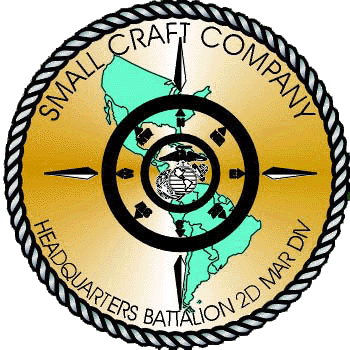


Sat, May 16, 1998 Marines learning some old lessons Riverine exercises making progress on waterways here,around the globe BY C. MARK BRINKLEY DAILY NEWS STAFF
For the Marines from Camp Lejeune's Riverine Center of Excellence, the past year could be considered a hard lesson. Never forget where you came from. Or how you got there.
Thirty years ago, the United States' ability to use rivers as battlefields was made formidable by virtue of the seemingly endless war in Vietnam.
Fighting in a region that lacked infrastructure, that relied heavily on waterways for commerce and transportation, forced the U.S. military to adapt. It was an ability born out of necessity -- honed through trial and error -- often at the expense of human lives.
As soon as it was perfected the war came to an end, thus eliminating its immediate need. When the Cold War later overshadowed the importance of a mobile riverine force, the newly discovered techniques were replaced by the military buildup of the '70s and '80s.
By the time the United States realized that the war on drugs could be best fought from the world's rivers, the capability to do so effectively had somehow been lost.
It was with that in mind that the Riverine Center of Excellence was established in 1997, designed to re-create that once-formidable presence.
"We're relearning basic, old lessons here," said Maj. Mike Richards, operations officer for the 2nd Marine Expeditionary Force rotary wing.
Steadily, the group is making progress. In the past year, they have participated in countless hours of training -- locally on the New River and Intracoastal Waterway, and abroad on any river that will have them. They have conducted seminars with foreign nations like Argentina and Peru, countries which depend on waterways for transportation and trade and are constantly battling narcotics traffickers.
They have studied new ideas, like water-based refueling stations designed to maximize training time by eliminating travel between the refueling stations on shore and the training area.
They have successfully tutored hundreds of American troops in the art of riverine warfighting, a point easily proven by watching the service members in action.
Take, for example, the Second Annual Riverine Interoperability Exercise conducted this week at Camp Lejeune. Utilizing assets and troops from every branch of the armed forces, the capabilities demonstrated far exceeded those of the first RIOEX, conducted in 1997 just months after the center was formally established.
"This is different than last year because we have restricted all of the movement totally to the water," Richards said. "It's a step forward for us."
Rather than having land-based operations, as was the scenario last year, the Marines seldom left the river this week -- creating a floating command center from two Army barges and two large sections of Marine ribbon bridge. The water-based facility became a forward-support base on the river, a dry place where troops could sleep, vehicles could be repaired and operations could be launched quickly and efficiently.
"We're trying to raise the bar each time, do a little more each year," said Maj. Paul Greatsinger, commanding officer of Camp Lejeune's Small Craft Company. "We're constantly trying to move forward."
Military visitors from nearly a dozen Central and South American countries attended the exercise, traveling to the floating base by boat with hopes of gaining insight into warfighting on the world's oldest -- and newest -- battlefield.
"We understand their resources are not the same as ours," Richards said of the guests, who came from places like Bolivia, Panama, El Salvador and Honduras. "We're hoping that they can look at some of our concepts and some of our technology and take something home."
Many expressed those same desires, hoping that U.S. innovations in riverine training will help them eventually end the drug trade destroying their countries and corrupting their governments.
"Drug dealing doesn't only hurt the people who actually take the drugs," said Carlos Garrido, a commander in the Peruvian navy. "It's doing a lot of harm to my country and every country which exports drugs. The amount of money that is involved in this kind of trafficking is so big.
"It's so big that it tends to corrupt people in the military, politicians, people in the judiciary," Garrido said. "It's like a social cancer."